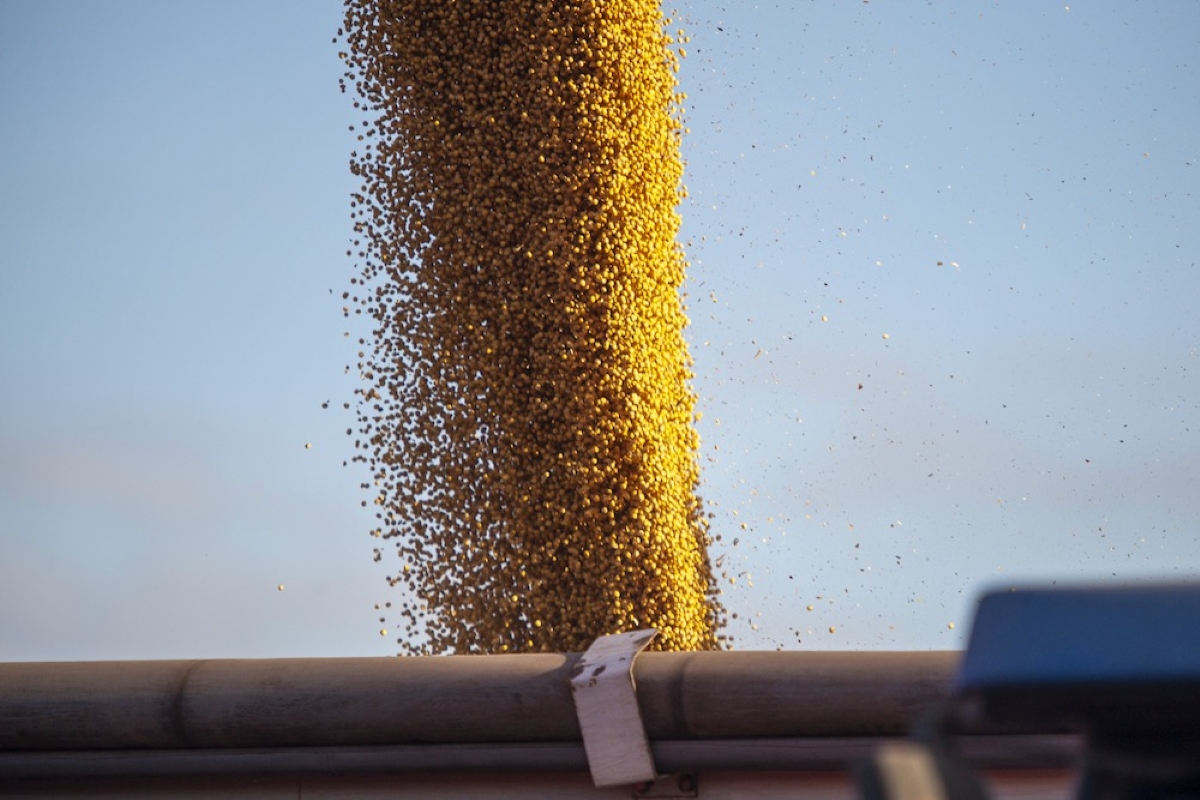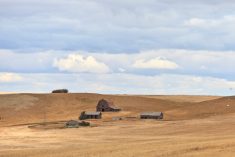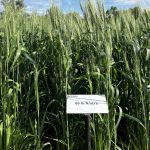A pair of Alberta college farms and Glacier FarmMedia’s Saskatchewan farm are the first to plug into a national network of “smart farms” to improve the ag sector’s smart technology experience.
The Olds College Smart Farm will lead the Pan-Canadian Smart Farm Network, which will also include Glacier FarmMedia Discovery Farm at Langham, Sask. and the Lakeland College Student-Managed Farm – Powered by New Holland at Vermilion, Alta.
The new network’s first joint project will evaluate the “functionality, connectivity and value of data” from a common suite of sensors measuring soil, climate and crop conditions.
Read Also

Brazil to reap record soy crop in 2025/2026, increase exports
Brazil’s Conab said the country will reap a record soybean crop of 177.6 million tons in the 2025/2026 harvest year, according to data released on Thursday.
Each of the project sites has installed Metos Canada’s wireless sensors and other data-gathering devices such as for field monitoring, weather monitoring and forecasting, water management, disease modelling, insect monitoring and crop nutrition management.
The data will go to make on-farm management decisions — timing fungicide applications, for example — and the farms will “evaluate the benefit of using data to manage those decisions.”
Some funding for the new network’s activities will come from the Canadian Agri-Food Automation and Intelligence Network (CAAIN), a separate network of over 60 technology and agrifood companies and organizations backed with funding from the federal innovation, science and economic development ministry. Both Olds and Lakeland are among CAAIN’s core partners.
A specific focus for CAAIN, when that network was launched in 2019, was to “create and implement a smart farm platform that integrates partners and creates the context for testing, demonstrating and scaling technologies.”
In all, the Pan-Canadian Smart Farm Network will pay for network-approved activities with a $2.9 million funding envelope including $1.1 million over three years from CAAIN, about $570,000 from other public-sector agencies and the balance from private-sector partners.
The Pan-Canadian network was one of nine winners of funding through CAAIN’s 2020 Closed Competition, in which other recipients include a project to develop a non-invasive approach to determine the gender and fertility of pre-incubated chicken eggs. In a separate release Thursday, CAAIN said it will announce the seven other recipients “over the coming weeks.”
On a call Wednesday with editors from Glacier FarmMedia — whose media assets include this website — Dr. Joy Agnew, Olds College’s associate vice-president of applied research and principal investigator for the Pan-Canadian Smart Farm Network project, said the new network has “ambitious” plans to expand to additional sites in the near future.
The initial collaboration — taking place across different agriculture zones and land bases — is expected to bring more depth to the results of the evaluation, she said in a joint release Thursday.
“Independent validation of ag technologies is critical and so is ensuring that validation is done using more than a single smart farm,” she said. “By joining with other partners, we’ll be providing farmers with information that will meaningfully inform their decisions about how and where to use sensor technology.”
The new network, she said on the GFM call, is “truly an example of a situation where one plus one plus one equals five.”
Blake Weiseth, applied research lead for the GFM Discovery Farm and agriculture research chair for Saskatchewan Polytechnic, noted the farm has been using Metos sensor data in field-scale projects and “having access in real time to similar data from other sites in Canada will expand our understanding of its value.”
Work is already underway to find more smart farm network members across Canada, the partners said, adding they expect to have opportunities to link the Pan-Canadian network with other smart farms internationally.
Glacier FarmMedia’s other Discovery Farm site, at Woodstock, Ont., is an example of a farm that could be added to the Pan-Canadian network if sufficient funding is made available, Weiseth said.
Josie Van Lent, Lakeland’s dean of agriculture technology and applied research, said Wednesday the network will also provide real value on the education side as “living labs” for the colleges’ students.
At Lakeland, the Pan-Canadian network’s activities are expected to be integrated into the college’s crop technology, animal science technology and bachelor of agriculture technology programs.
“When Olds College submitted this project for consideration, we were immediately intrigued,” CAAIN CEO Kerry Wright said in Thursday’s release. “Smart farms validate and demonstrate the use of innovative agricultural technology in a specific environment, and they provide opportunities to train students enrolled in post-secondary agriculture programs on the latest trends in ag tech.”
Another advantage for the Pan-Canadian network, she said, lies in “its opportunity to link smart farms across the country, thereby multiplying learnings and increasing the value of any data generated.” — Glacier FarmMedia Network















